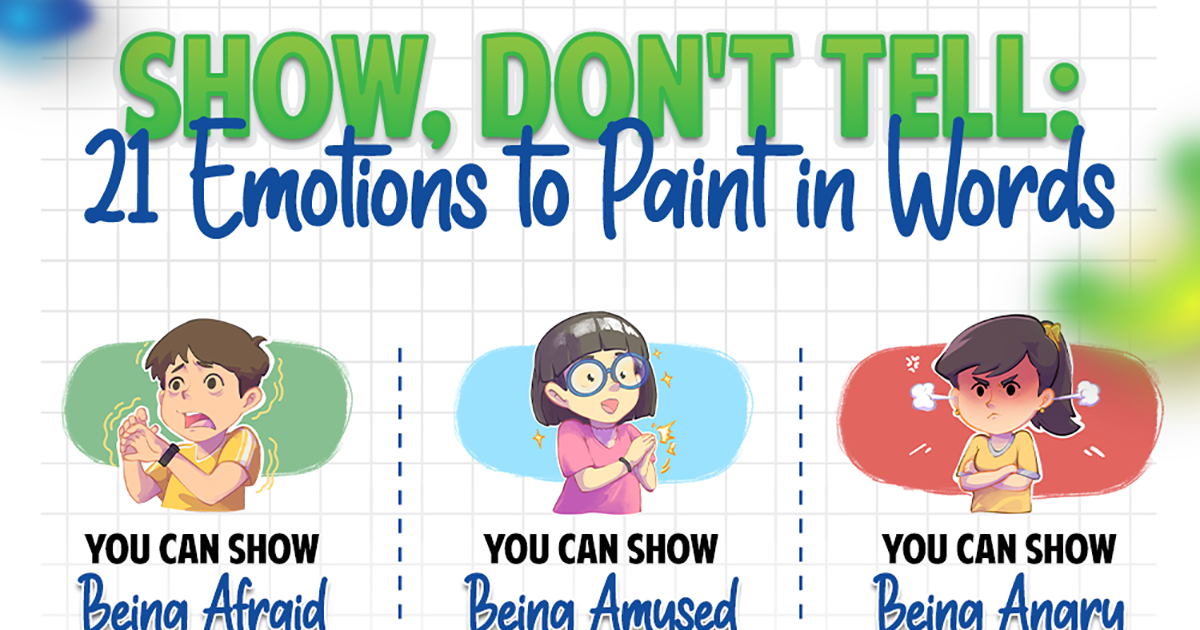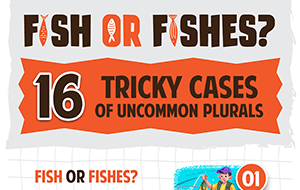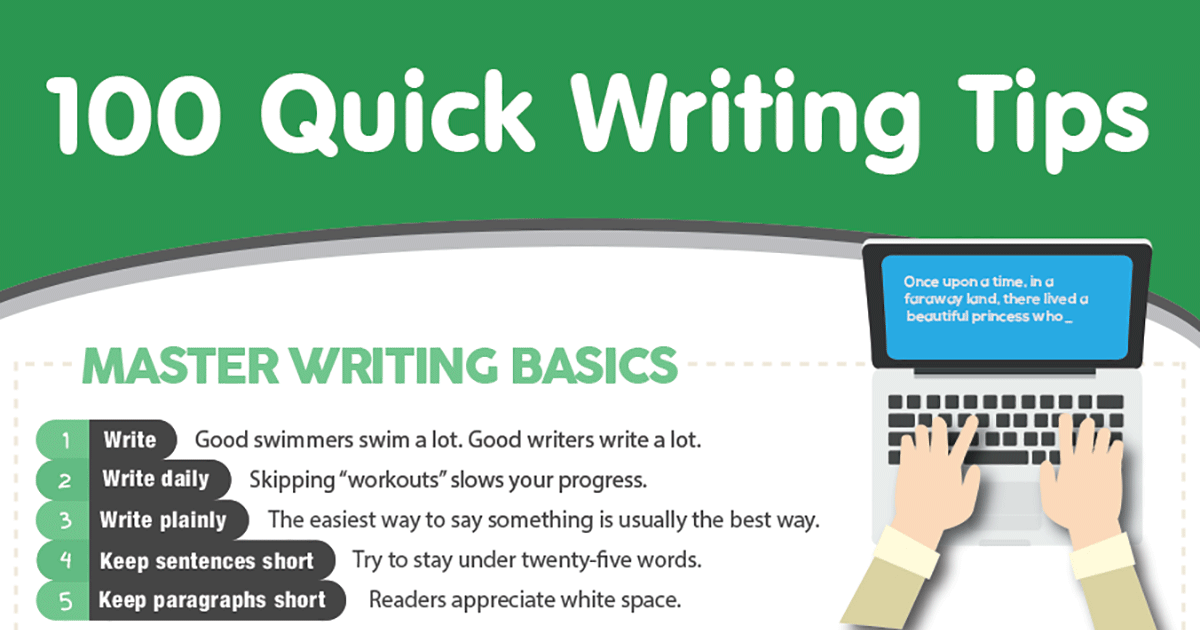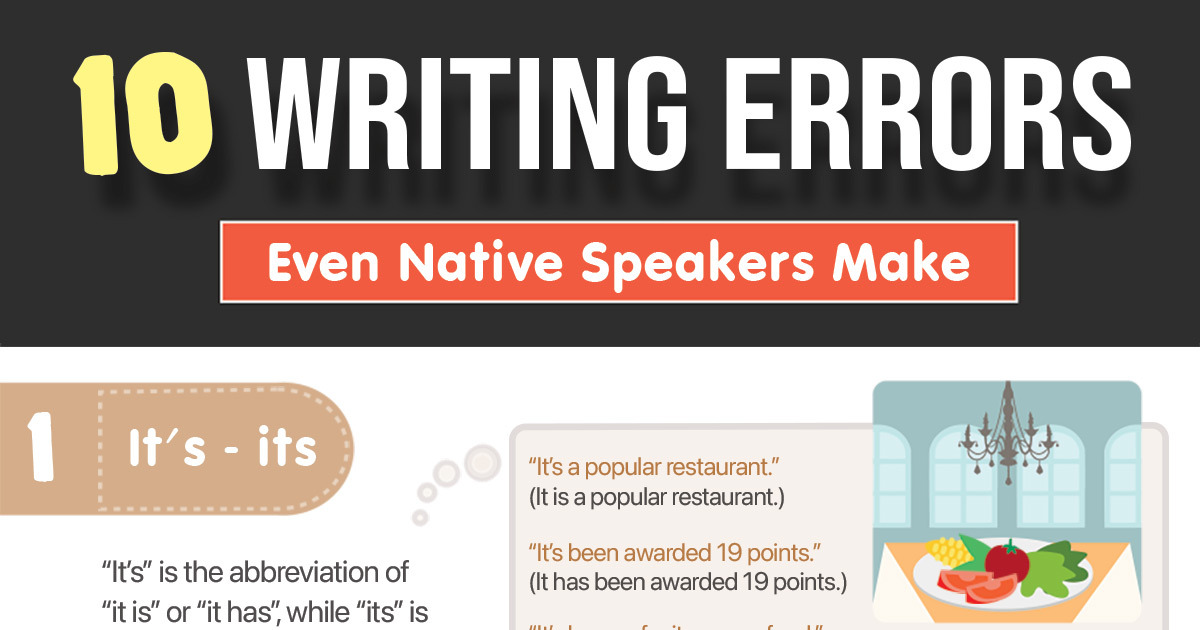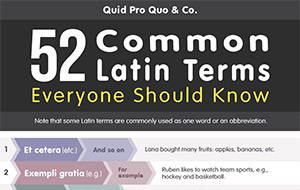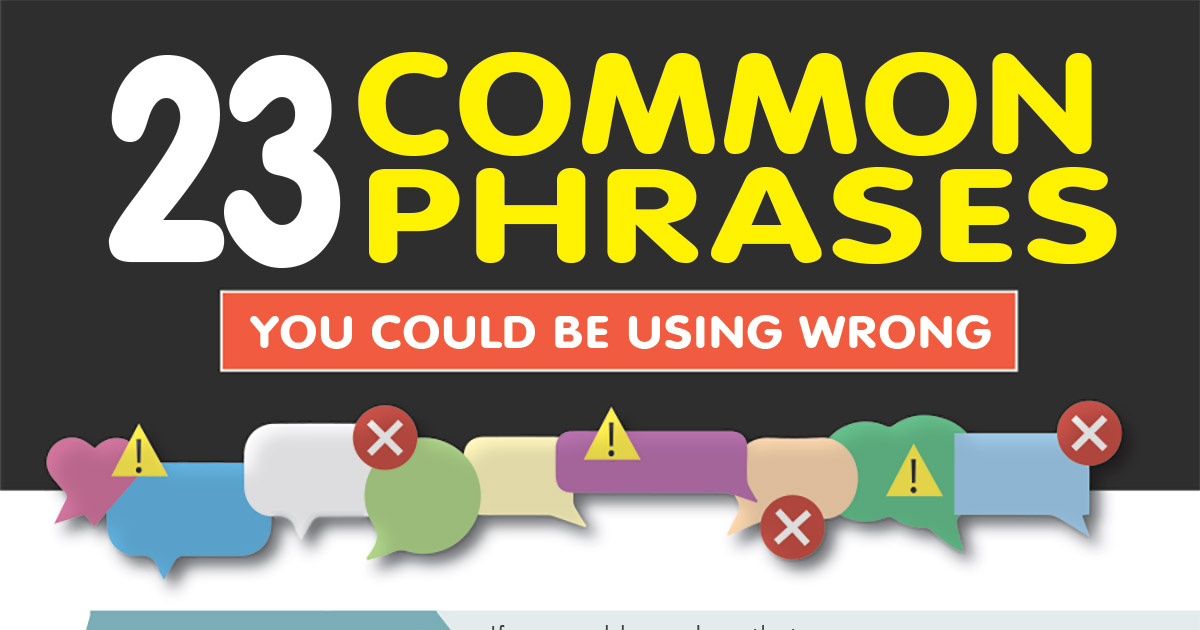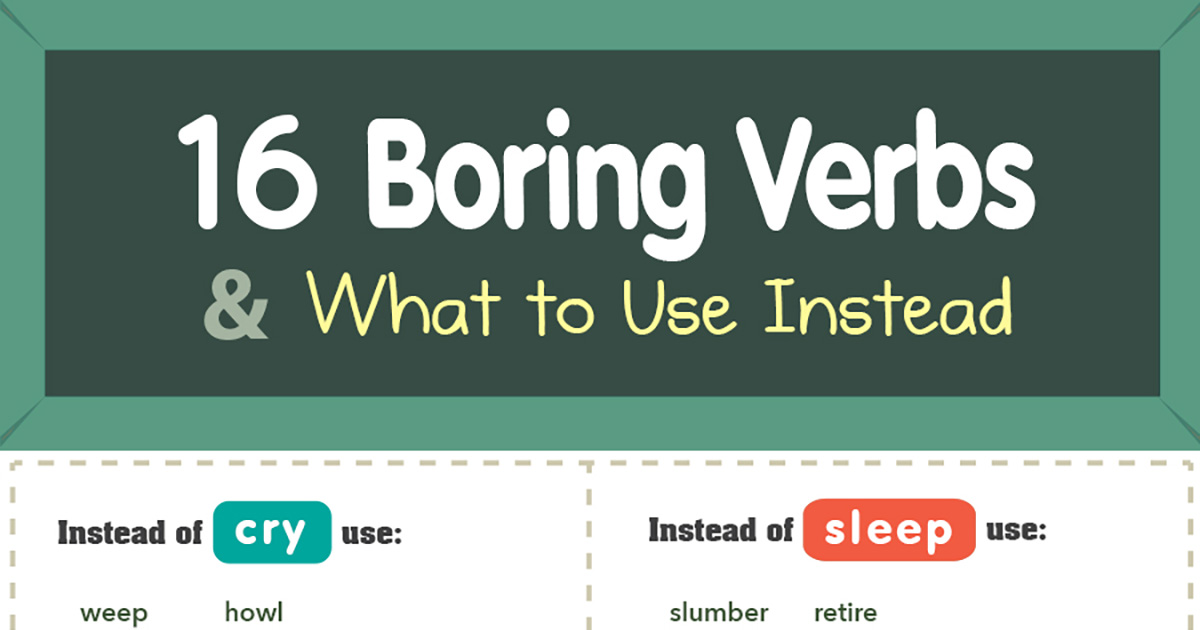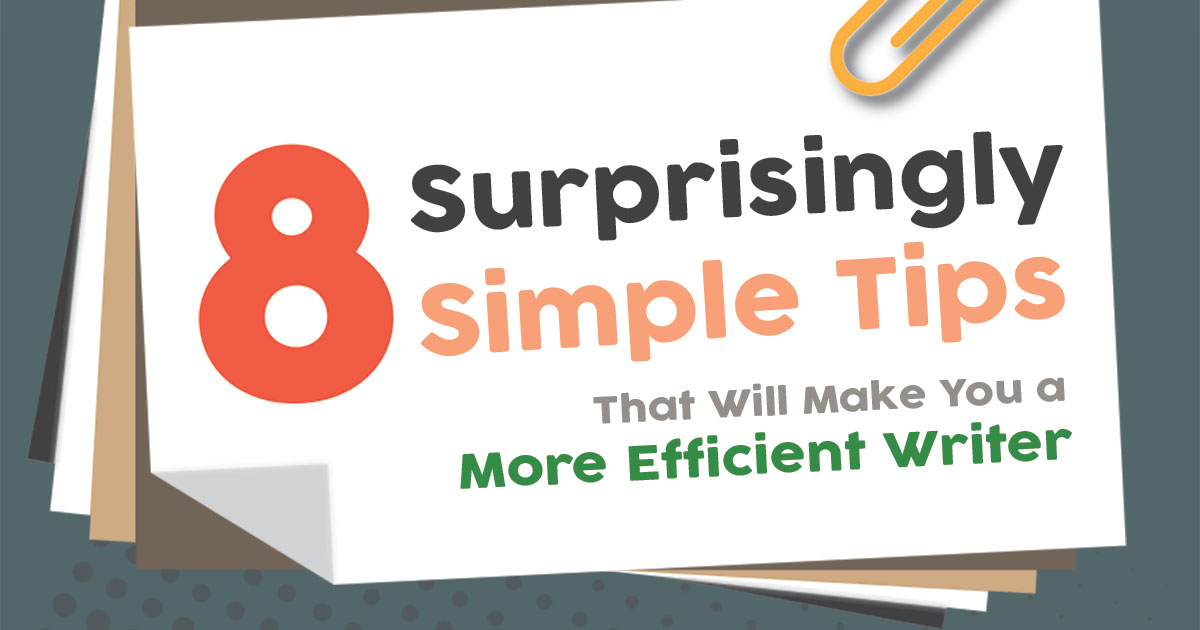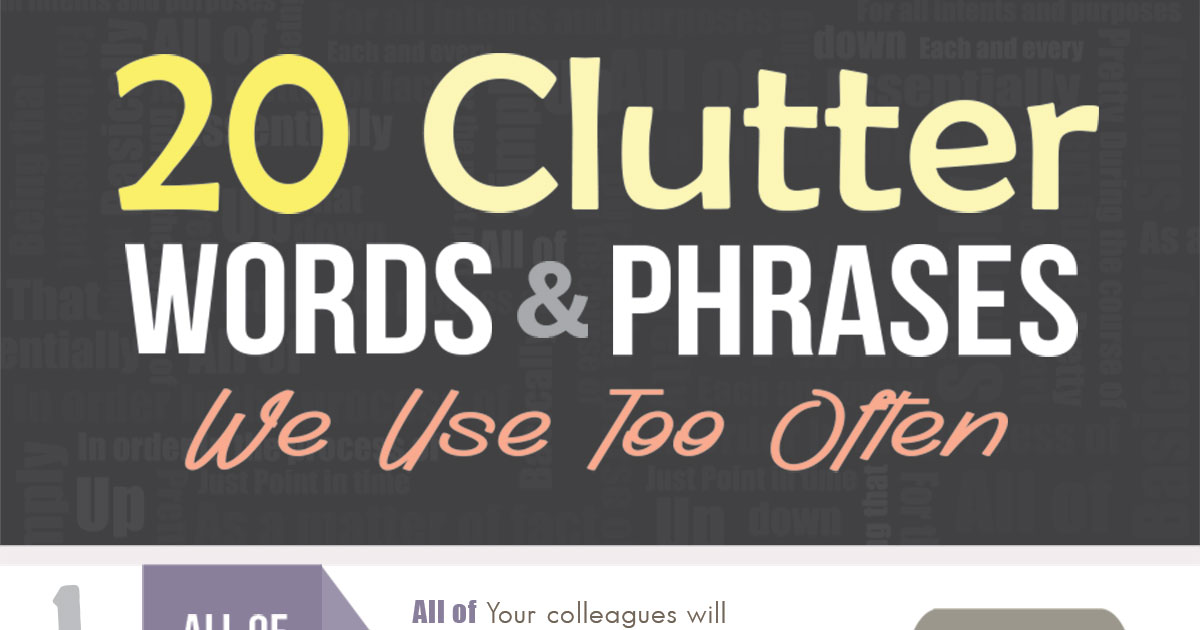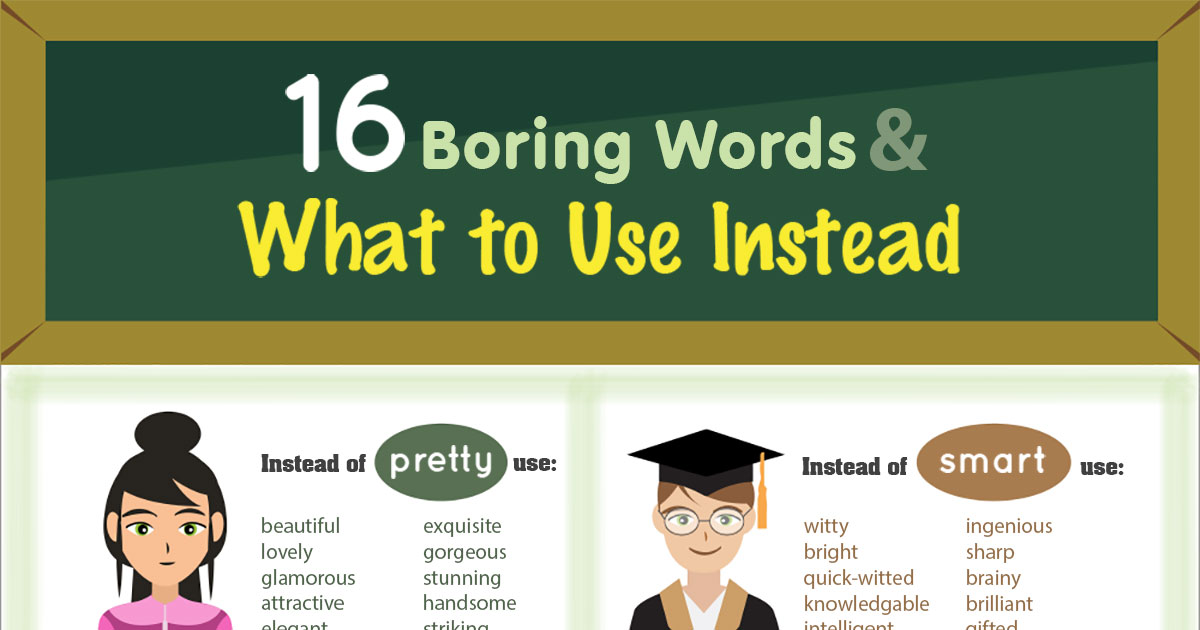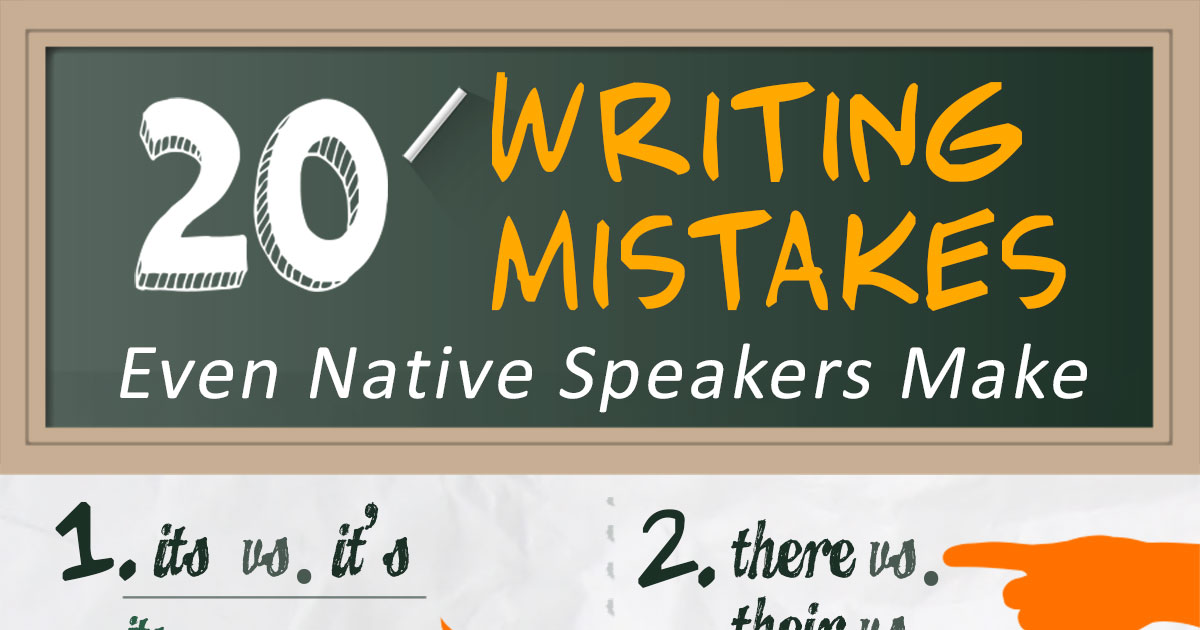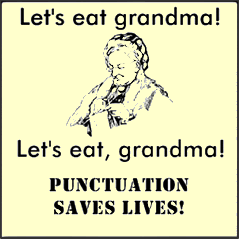 Do you remember how hard your English teacher had to work in order to brush up your English skills? How you had to slave over sentence structure, objects and subjects and the correct use of grammar? However, then you left school and all of a sudden the rules were out of the window and text language was a lazy substitute for formal written communication. Without a doubt, at some stage in your adult life you are going to need to be able to write an application for a job, a mortgage or a loan and you may find constant punctuation errors let you down. This article aims to address some of the most common punctuation errors and keep your English teacher happy.
Do you remember how hard your English teacher had to work in order to brush up your English skills? How you had to slave over sentence structure, objects and subjects and the correct use of grammar? However, then you left school and all of a sudden the rules were out of the window and text language was a lazy substitute for formal written communication. Without a doubt, at some stage in your adult life you are going to need to be able to write an application for a job, a mortgage or a loan and you may find constant punctuation errors let you down. This article aims to address some of the most common punctuation errors and keep your English teacher happy.
1. Apostrophes in contractions
This is basic kindergarten stuff. Any time you want to shorten a word you use an apostrophe. For example:
Do not = don’t
Is not = isn’t
Shall not = shan’t
The apostrophe must be placed where the letters have been removed.
2. Plurals vs. possession
Here’s one that would make your English teacher tear her hair out. You don’t make a noun plural by adding an apostrophe.
Buy my lovely fresh apple’s. Wong, wrong, wrong!
Look at my lovely dog’s. No!
Putting an apostrophe after a noun indicates possession; that something belongs to something else. For example:
Look at my lovely dog’s bowl. (One dog and one bowl to look at. The bowl belongs to the dog.)
The cat’s whiskers. (One cat with whiskers that belong to the same cat).
The apostrophe is placed after a plural where you need to show possession belonging to a group of somethings. For example:
The dogs’ bowls. (Many bowls belonging to many dogs).
The footballers’ boots. (Many boots belonging to many footballers).
3. It’s/its
It’s = it is. It is lovely. It’s lovely. This is a contraction. See (1) above.
Its = possession. Its eyes were green. Indicates possession.
Its’ = does not exist. Ever.
4. Your/ You’re/ You are
You are can be contracted to you’re. You’re the best.
Your demonstrates possession. Give me your car keys.
5. There/ their/ they’re
They are can be contracted to they’re. They’re such friendly people.
Their demonstrates possession. Give them back their passports.
There indicates place. I left my phone over there.
6. Arbitrary commas
Ah the humble comma; a source of many punctuation errors. There are countless ways to use (and abuse) commas, but the one that is mixed up the most is that which is used to separate two complete thoughts that are linked with a conjunction. A conjunction, by the way, is the glue that joins two or more phrases, clauses or words together.
You use a conjunction to stick two complete sentences together. So:
I opened the door. I went into the kitchen.
Becomes
I opened the door, and I went into the kitchen.
But the comma is arbitrary and does not need to be there, so the correct sentence should be
I opened the door and I went into the kitchen.
7. Using a comma in an introductory statement
The introduction to a sentence usually has a comma. Here are two correct examples:
Sarah, how are you doing?
Hi, it’s great to see you.
Before going to the shop, John had to visit the cashpoint.
8. Appositives
Do you remember your English teacher telling you that an appositive is a noun, or a noun substitute, that is offering clarification or repeating the meaning of the noun preceding it, and it is set between commas to highlight this? If you’re anything like me, the answer is “probably not”.
Metallica, the heavy metal group, are touring in Australia this summer.
The information between the commas is relevant but not necessary for the sentence to make sense. However, the information is needed as clarification for those who haven’t heard of Metallica.
9. Commas and numbers
Separate numbers that run into each other require commas. This is especially important with dates in numerical form.
On January 16, 2014, I will be 21 years old.
However it is not needed if there is only one date.
In January 2014 I will be 21 years old.
10. Colon
The colon should be used to introduce a list or a series, but only if it is used after an independent clause, meaning that the first part of the sentence before the colon is correct and complete and makes sense by itself.
The postman brought me: letters, a parcel and some brochures. Incorrect.
The postman came to the door with a number of items: letters, a parcel and some brochures. Correct.
11. Semi colon
The semi colon is single-handedly responsible for a large number of punctuation errors. The semi colon separates two independent clauses without using a conjunction.
She sold her car; the payments had gone up again.
The semi colon can also be used to separate items in a sentence that already use a number of commas.
Having visited the post office I was able to send letters out to a number of cities; Delhi, India; Kathmandu, Nepal; Venice, Italy; and London, England.
12. The use of quotation marks for emphasis
Quotation marks are designed to be used to indicate speech. They are also fine to wrap around the title of a book or film or piece of music. You can also use speech marks where you use an unusual word, but only do that the first time you use it. So for example, if I suggest that the house sale was “gazumped”, I would place that word in speech marks and then I would need to explain what gazumped meant.
You do not use speech marks simply to place emphasis. The following examples of speech mark use are incorrect.
Salient Cleaners – “Bringing sparkle home”
The supermarket was offering “Buy one, get one half price”
I asked him to “please” get on with it.
13. Multiple punctuation marks
If you have a tendency to use multiple exclamation or question marks in your writing, you really need to stop it now!!! Do you understand??? What would your English teacher say??!!
You should also make a habit of not over using these punctuation marks in academic, formal or business writing.
14. Proper nouns and official titles need a capital letter
If it’s a name it needs a capital letter.
Statue of Liberty
London Bridge
Sidney Opera House
The Eiffel Tower
Ford Capri
The Pope
The President of the Bank of England
15. Incomplete sentences
Last but not least, one of the most annoying punctuation errors you can make that would have your English teacher squealing is not to finish your sentences. Microsoft Word hates an incomplete sentence too, so it must be haunting the ghost of your English teacher. Don’t write in fragments. Ever.
I could beat you all. In this test. If I wanted to.
The above should be correctly written as:
I could beat you all in this test if I wanted to.

